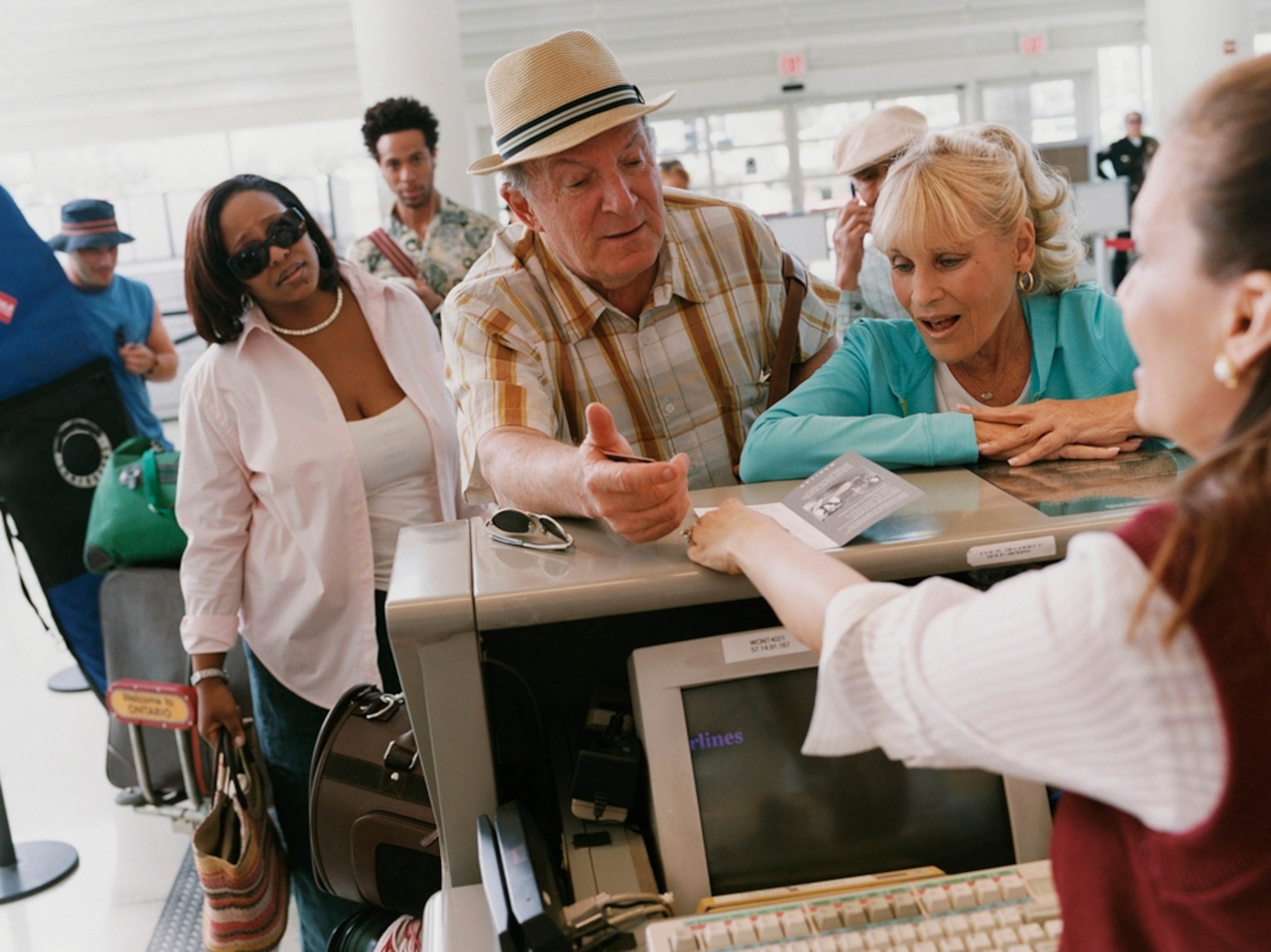
Know Your Erroneous Zones
The Insider
From the August/September 2012 issue of National Geographic Traveler
To travel is to make mistakes. Taking a trip, by definition, involves new destinations, new experiences—and new errors. As your ombudsman, I have a front-row seat to your vacation snafus. But here’s something I’ve noticed: Many mistakes aren’t new. They’re recycled. Knowing of them could prevent problems down the road. So here are the most frequently repeated screw-ups culled from more than two decades of consumer advocacy.
The first: Wiring money to strangers. Bad idea, right? Heck, your mother probably warned you against it. But who can remember Mom’s advice when someone dangles a deal in your face? Here’s how one current version works: A victim finds a vacation rental online, e-mails the owner, and negotiates a sweetheart deal. But payment must be wired immediately. It happened to Kathryn Bowden, a portrait artist who lives in Sorrento, Florida. The bargain she found on a rental in Kissimmee through HomeAway.com was simply too good to pass up ($3,800 instead of $4,500). So she wired the cash to the owner, who lived in England. Someone appears to have replicated the real owner’s e-mail account, assumed his identity, and then funneled the money to the thief’s account. With a click, Bowden lost almost four grand. “It was a fabulous house,” she says regretfully, adding that she wishes she’d paid with a credit card and been able to speak to the real owner by phone before booking.
2. Waiting until the last minute to review your itinerary. Tiffany Purcell, a teacher from West Palm Beach, Florida, noticed a problem with her ticket when she arrived at the airport. Somehow, her fiancé’s last name had become her last name. And no, she hadn’t tied the knot. Their airline, United, forced her to buy two one-way tickets under her correct name. If she’d reviewed her flight details when she received them, the error might have been corrected. It takes less than ten seconds to read the name and date on your ticket. As soon as you receive confirmation of your ticket, take the time to review it carefully.
3. Pushing the “buy” button more than once. Holly Johnson tried to book a ticket from Boston to Madison through Expedia. The first attempt failed—or so she thought. “I got an error screen,” says the college student. She tried again and ended up with two tickets. If you get an error message when booking online and/or don’t receive a confirmation e-mail after several minutes, call the customer service number to find out if your transaction went through.
4. Not getting the terms of your international cell phone plan in writing. By now, most travelers know to turn off their cell phones when abroad or purchase an international plan to avoid the highest rates. Joyce Simon, an accountant from Chicago, thought she’d signed up for such a plan when she and her husband visited French Polynesia last year. Over the phone, an AT&T representative had assured her they were covered. “After a few days, we started getting text messages on our phones warning us that our data use was extremely high,” she says. A $3,364 bill awaited them when they returned. Fortunately, her husband had noted the name of the representative, and the phone company eventually adjusted the Simons’ bill. Avoid the hassle: Get any changes in writing, or better yet, power the phone down except in emergencies. (Do you really need to be wired up while in Bora-Bora?)
5. Assuming that because your travel agent or tour operator said so, your documents must be in order. Becky and David Hovis asked a representative from Carnival Cruise Lines if they needed passports for their Caribbean cruise and were told they didn’t—any government-issued ID would do. But when they arrived at the port in Tampa, Florida, the cruise line said they did need passports after all and denied them boarding. “I talked to a manager,” says Becky Hovis. “No luck.” The couple missed their honeymoon cruise. Had they checked with the State Department, they would have known that a driver’s license wasn’t enough to leave the country. Unfortunately, it was up to them, not Carnival, to make sure their paperwork was in order.
- National Geographic Expeditions
6. Believing you won a “free” cruise. Reader Henry Baumgaertel contacted me after he responded to one of these bogus offers. “Usually, I ignore them,” he said, “but this one had the logo of a well-known cruise line.” When he phoned to claim his prize, he was told he had to attend a time-share presentation and pay $288 in “port taxes” and a $49 fee to make the reservation. And that’s inevitably how it goes. Ditto for travel clubs that promise deep discounts in exchange for an annual fee. My advice? Toss these come-ons into the recycling bin without giving them a second thought.
There’s one more thing I’ve learned from years of hearing about trips gone wrong: Sometimes a mistake turns what would have been a perfectly ordinary trip into a memorable experience you will talk about at cocktail parties for years to come. Remember the Hovises? Their Caribbean cruise turned into a honeymoon in Tampa, which has no shortage of beaches and cultural attractions. And after I contacted Carnival on their behalf, it agreed to offer the honeymooners a do-over cruise. And the story they have? Priceless.






